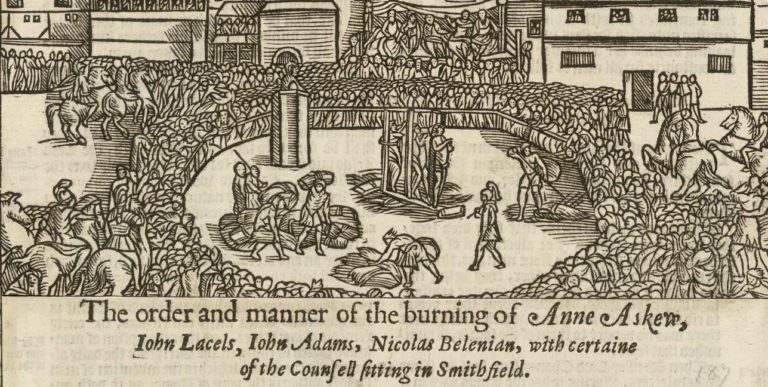The past 18 months have proven difficult for all Victorians. During this time hundreds of thousands of Victorians have been gratefully receiving support, care and education provided by religious organisations such as schools and counselling services. Churches have continued to minister to people and offer hope where disease and lockdowns have darkened the lives of so many. During this same period, the Victorian Government has moved again and again to reduce the freedoms of religious organisations which hold beliefs and practices in keeping with the historical convictions of their religion.
The Victorian Government has moved again and again to reduce the freedoms of religious organisations which hold beliefs and practices in keeping with the historical convictions of their religion.
In February this year, the Government introduced and adopted the Change or Suppression (Conversion) Practices Prohibition Bill 2020. While Churches agreed with aspects of the Bill, the Government took the unnecessary approach (breaking with jurisdictions around the world) of defining conversion practices as broadly as possible, such that normal Christian activities are now prohibited. The Act makes it illegal for Christians (and others) to pray with or speak with another person about sexuality and gender with the aim of persuading them according to Christian beliefs. The Government believes that these activities are so heinous that they have attached a prison sentence of up to 10 years for anyone breaking the law (this law comes into effect February 2022).
This week, Attorney-General Jaclyn Symes announced another piece of legislation. This Bill will be brought to the Victorian Parliament before the end of the year, limiting religious organisations in employing persons who subscribe to the values of the school, counselling centre, or aid agency.
The Age reports:
Religious schools in Victoria will be prohibited from sacking or refusing to employ teachers because of their sexuality or gender identity under sweeping social reforms proposed by the Andrews government.
Attorney-General Jaclyn Symes said legislation would be introduced later this year to close an “unfair, hurtful” gap in anti-discrimination laws that allow faith-based organisations to discriminate on the basis of sexuality, gender and marital status.
“People shouldn’t have to hide who they are to keep their job,” Ms Symes said.
While the story focuses on Christian schools, the legislation is again broad and will swallow a great number of organisations (even some churches):
The Victorian bill would also mean no faith-based organisations could discriminate when delivering government-funded services such as counselling or homelessness support, or hiring out community facilities.
The proposal is deeply flawed and should trouble religious and non-religious Victorians alike.
The proposal is deeply flawed and should trouble religious and non-religious Victorians alike.
First of all, the conversation is wrongly framed. Not only is the Attorney General twisting the narrative, but even The Age assumes the storyline that is being fed to us by today’s cultural preachers. This storyline paints Christians as mean and intolerant bigots hunting for gays and lesbians to expel. A more temperate reading would see that it’s actually about faith-based organisations having the right to appoint staff who affirm their values.
Christian and other faith-based schools exist because families want their children to be educated in line with their faith. Faith-based schools are also growing, in large part, because thousands of Australian families have lost trust in the ideologically loaded education delivered by State schools. Now, having driven them away, the Government is pursuing them in their faith-based schools—attempting to deny them their freedom of association.
Should a cricket club be forced to appoint a coach who wants to change the game to lacrosse? Should the ALP be forced to welcome One Nation members into the fold and change their platform to accommodate One Nation? If a hospital employs a doctor who later changes their views, coming out as an anti-vax campaigner who disagrees with COVID vaccines, should the hospital be forced to put them in charge of immunology? Why would any organisation or company employ someone who does not support their basic values and vision?
Not only does the framing of this conversation sounds like a badly acted caricature on Comedy Central, but the policy itself is troubling in the secularist view of religion it seeks to impose.
Ms Symes said the reforms would “narrow” the exceptions to anti-discrimination legislation so that any discrimination would need to be “reasonable” and an inherent requirement of the job. For example, a school might be permitted to prevent a gay or transgender person being a religious studies teacher but could not stop them being a maths teacher.
The lives and commitments of gardeners and office administrators are not irrelevant simply because they are not teaching Scripture.
But who is the Attorney General to dictate where religious organisations draw the line between religious and ordinary work? Do we really want the State defining the theological beliefs and requirements of faith-based organisations? As it is, the Government is already creating a false dichotomy that does not exist in the Christian faith, nor in many other religions: every role is an expression of commitment to God; every member a valuable part of a community of common purpose. The lives and commitments of Gardeners and office administrators within that community are not irrelevant simply because they are not teaching Scripture.
Equality and Sameness
I’m not doubting the Victorian Government’s commitment to the idea of equality, but their paradigm is flawed. It represents an ethic that is ultimately not about diversity but rather conformity. Equal Opportunity has been confused with sameness.
Is the Attorney General the new Archbishop? Has the Government made itself an ecclesiastical council? Is it reasonable for a Government to determine what constitutes required religious adherence or not? Is it the Government’s role to dictate theology and ministry practice? Does the Government have the necessary skills and knowledge required to adequately understand theology and therefore make the right judgement regarding the question of what is inherent?
The Labor Government tried to pass similar legislation in 2016, the Equal Opportunity Amendment (Religious Exceptions) Bill. It fell short by a single vote in the Legislative Council. The vote is likely to be reversed on this occasion.
If this attack on religious freedom were not already a step too far, Jaclyn Symes is already hinting at expanding it. The Bill has not even been tabled in Parliament and the Attorney General is fishing for justification to broaden the intrusion into religious organisations:
“We could be convinced to extend it, we just haven’t consulted on that particular element of reform. I certainly wouldn’t have a closed mind to revisiting that down the track.”
The previous Attorney General, Jill Hennessy, made a similar comment in 2020 in relation to the Conversion Practices Bill. She indicated that the Government is open to extending prohibited “practices” in the future to include church-based sermons:
“This ensures that conduct generally directed—such as sermons expressing a general statement of belief—is not captured. However, such conduct may be considered as part of the Legislative Assembly’s ongoing inquiry into anti-vilification protections.”
Vicious and Unnecessary
These Government moves sadden me, not only because the proposal is so unnecessary and represents such a significant threat to religious freedom, but also because (like many Christian leaders) I have urged people to do the right thing throughout this pandemic and to be patient with Government restrictions. We regularly pray for our Premier and the Government, and so this latest legislative move seems all the more vicious and unnecessary.
We regularly pray for our Premier and the Government, and so this latest legislative move seems all the more vicious and unnecessary.
Religious organisations are already free to employ people regardless of sexuality if they so choose. The Victorian Government wants to take away choice.
For those who can still remember back to 2017 and the assurances offered during the Marriage Plebiscite, they have proven to be as leaky as a bucket of water held by a politician in one hand and an electric drill in the other hand, and with a team of social activists turning on the power.
Above all, what concerns me is how the legislators framing this debate skew the very nature of the Christian message. The Gospel of Jesus Christ isn’t phobic or bigoted, and neither does it affirm and agree with every idea and desire that we express. The good news is God’s gracious and loving message of redemption. The Christian worldview presents an attractive alternative. Of course, not every Victorian will be convinced—and I’m the first to admit that sometimes Christians don’t help convince neighbours by some of the things we say and do—but this Government is bent on removing this choice and embedding a version of sexual secularisation into Christian schools and organisations. This kind of intrusion will not strengthen our society or foster the vibrant pluralism and tolerance that once marked Victoria.
By the end of the year, hundreds of schools and organisations will need to decide who they’ll follow. Will they sacrifice the good and God-given vision for marriage and human sexuality or will they sacrifice Government funding?* A healthy and pluralistic society should never force this junction. At a time when we are still trying to survive the most difficult season in living memory, this Government is threatening religious organisations. One may hope that commonsense will prevail and that this legislation will fail, but I suspect it’s time for organisations to consider what their true values are and where their ultimate allegiance lies.
First published at murraycampbell.net
* Teachers have shared with me that it’s not just funding at stake but also registration and the ability to continue as a school.















